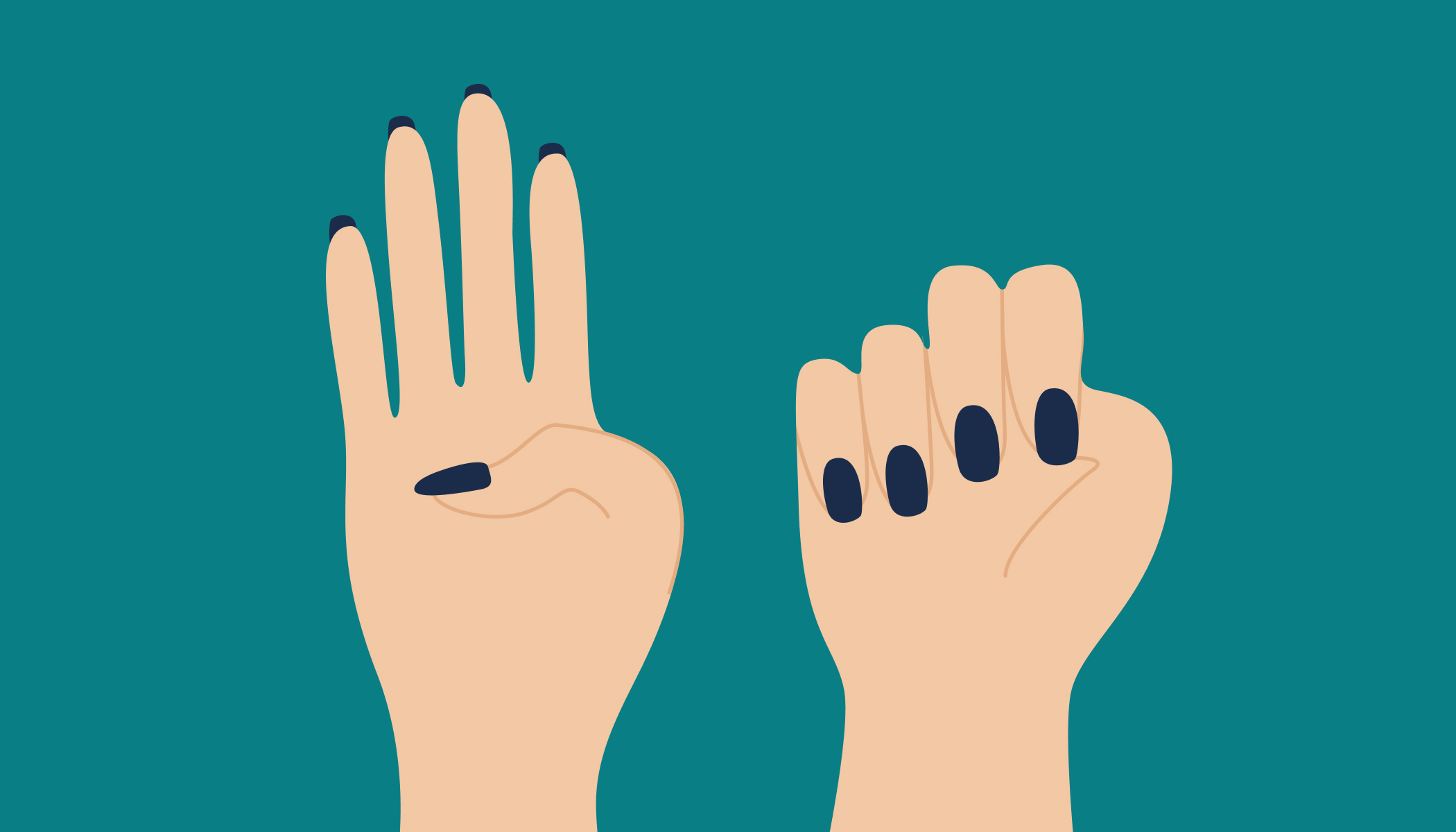Struggling with breakouts and acne? You’re not alone. ‘Acne is incredibly common, with many people affected during adulthood,’ says Dr Samuel Menon. One significant study found that around 50% of women and 40% of men have some kind of facial acne.
For many people, acne affects more than just their appearance – it can also have a real psychological impact. As of June 2021, the National Institute for Health and Care Excellence now recommends mental health support for those who are severely affected by their acne.
‘Studies or trials in skin disease often include depression assessments for a reason,’ says Dr Menon. ‘People with a skin condition like acne often suffer in silence. It’s important to remember that you’re not the only one.’
What causes acne?
‘Acne is one of those conditions with several possible causes, which we continue to learn more about,’ says Dr Menon. ‘But what we do know is that acne happens when our skin’s sebaceous glands make too much of an oil called sebum. At the same time, the lining of our pores gets thicker, trapping dead skin cells the body wants to shed. A mixture of oil and dead skin cells builds up in our pores, causing blackheads and whiteheads.’
Oily skin is an ideal condition for acne-causing bacteria to multiply, leading to inflammation that can show up as red, swollen or pus-filled spots.
‘The possible causes and aggravators are often a complex interplay of genetic and environmental factors,’ says Dr Menon. The following are some of the common, established causes:
Hormonal changes
‘Our sex hormones – the androgens – are key to our development in adolescence and play an important role throughout our lives, but they can also cause and exacerbate acne,’ Dr Menon explains. ‘They influence both the production and type of sebum we make and the levels of inflammation.’
Insulin
‘This is another hormonal culprit,’ says Dr Menon. ‘Insulin is an essential powerhouse of a hormone that helps to control our blood sugar levels and metabolism. But if you’re eating a lot of processed or sugary foods, your body will need to keep releasing insulin as a response. There is some evidence that suggests too much insulin can make acne worse.’
Stress
‘When we’re stressed, we release more cortisol, a steroid hormone. This increases levels of sebum production, one of the key causes of acne,’ says Dr Menon. ‘This is not to say that stress alone will cause acne – it may just make it worse for people who are prone to it.’
Lifestyle
‘Lifestyle habits – from eating processed foods to being sedentary to smoking – all play a role in our skin health,’ says Dr Menon.
Does acne change with age and hormonal fluctuations?
Most people suffer less with acne as they age, and their symptoms tend to improve. But people still have acne in their 30s and sometimes in their 40s.
Many women under 30 report experiencing acne flares just before, during and just after their period. But for lots of women, the trigger seems to be a complex mix of hormones, stress and other factors.
‘Menstrual cycles do play a role in acne, and the combined oral contraceptive pill can be a useful tool in helping to control flares,’ says Dr Menon. ‘We would often recommend these in place of oral antibiotics and alongside topical treatments for those who are able to take them.
‘If, alongside acne, you’ve noticed some weight gain, your periods have become irregular or less frequent, or you’ve had hair growth where you wouldn’t normally expect it, speak to a doctor. We would want to rule out polycystic ovary syndrome, a common, treatable condition that can cause or aggravate acne.’
What is ‘maskne’?
The term ‘maskne’ arose during the pandemic as we started wearing face masks, and some of us noticed an increase in acne on the parts of the face covered by our masks.
It’s not unusual for those who need to wear surgical or cloth masks to notice breakouts, and this was the case before the pandemic, too. Most commonly, this is a result of either irritant contact dermatitis, allergic contact dermatitis or some form of atopic eczema, though there are different reasons why mask-wearing can trigger acne.
‘If skin is covered for long periods, whether that’s by a heavy cream or ointment or something physical, like a mask, acne is more likely in those who are prone,’ Dr Menon explains. ‘That said, masks are often loose-fitting enough not to cause a problem.’
How do I avoid ‘maskne’?
Using a gentle, soap-free cleanser and applying nothing but a light moisturiser at least half an hour before putting on your mask can help.
Wearing minimal or no make-up when you need to wear PPE is also a good idea. Choosing a mask with a soft, natural, breathable fabric like cotton on the inside can help too.
What really works when it comes to treating adult acne?
Resist the urge to squeeze
‘Try not to panic, and don’t pick or squeeze or scrub. Chances are, you’ll aggravate your skin, making your spots larger, more painful and more likely to scar,’ Dr Menon advises. ‘Applying a little Duac, a commonly prescribed acne medication, as spots start to appear is a good idea.’
Choose gentle products with active ingredients
Acne treatments don’t need to be expensive, complicated or fancy, according to Dr Menon. The most important thing is to be gentle with your skin barrier. ‘Use products that are simple and relatively inexpensive, without “buzz” ingredients or promises,’ he recommends. Try brands like Cetaphil, Cerave or Aveeno.
Products with ingredients like salicylic acid and benzoyl peroxide are useful but often irritating. ‘They’re also not particularly sophisticated in the way they work,’ says Dr Menon.
Try retinoids
‘Retinoids are clever and centralised in treating acne,’ says Dr Menon. They can help skin shed normally, lower inflammation and, if taken by mouth when recommended by a dermatologist, reduce how much oil your skin makes.
‘They’re prescription-only, but a weaker retinol is available in some over-the-counter products,’ adds Dr Menon. ‘The initial few weeks of using a topical retinoid can come with dryness, flakiness, redness and even more spots, but this period is short-lived and usually passes within a few weeks. You’ll usually notice improvements after 12 weeks – but they’re sustained with continued use, so try to be patient.’
Take note of your diet
‘There’s some evidence that high glycaemic foods and dairy have an impact on acne severity, with the evidence for the former stronger,’ says Dr Menon. ‘Do what’s right for you – if you notice that drinking, for example, a lot of milk makes things worse, reduce your intake, but lots of people won’t notice much.’
A healthy, active lifestyle is more important. ‘Avoiding unhealthy foods and staving off obesity will help,’ says Dr Menon.
How can I prevent and deal with acne scarring?
‘To prevent scarring, you must first prevent acne – which is easier said than done,’ Dr Menon notes. ‘But once you’ve developed scarring, there are several options to improve the skin’s appearance. This also tends to happen naturally over time without any treatments, too.’
- Microdermabrasion
Microdermabrasion can be helpful for some, if done regularly. However, it’s an expensive method and the results aren’t always great
- Skin-needling
Dr Menon suggests trying skin-needling with a derma roller – done by a trained practitioner. ‘A few sessions a couple of months apart will often bring improvements,’ he says.
- Laser skin treatments
‘There are also laser treatments that help with active acne alongside improving acne scarring,’ says Dr Menon. ‘There are several different types, but they’re mostly only available privately, so consult a doctor or dermatologist first.’
How do I prepare for an acne consultation with a doctor?
‘Try to be honest about how you’re feeling,’ Dr Menon reassures. ‘You might want to bring photos, but don’t feel like you need to prove anything. If you have acne and it’s bothering you, a doctor can help.’
A doctor will likely prescribe a topical retinoid, oral antibiotics or the oral contraceptive pill. ‘If you’ve been trying treatments with your doctor but haven’t seen progress in 6 months or more, ask about a referral to dermatology,’ he says. ‘If your skin is starting to scar, or your acne is impacting your self-esteem and how you feel about yourself, it’s important to seek help.’
This article has been medically approved by Dr Samuel Menon, Lead GP at Livi


